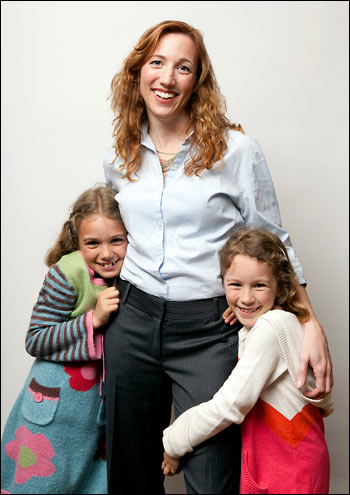Teaching kids gratitude instead of entitlement
Drawing from research and personal experience, parenting expert Christine Carter — director of UC Berkeley's Greater Good Parents program — shares insights on how practicing gratitude, not just at Thanksgiving but year-round, can make for happier families.
November 22, 2010
Drawing from research and personal experience, Christine Carter — a sociologist, happiness expert, and director of UC Berkeley’s Greater Good Parents program — shares insights on how practicing gratitude, not just at Thanksgiving but year-round, can make for happier families.
Q. Aren’t we born grateful? Why do kids need to learn this?
A. No. Most of us are actually born feeling entitled to our parents’ care. That means that if we don’t teach kids gratitude and practice it with them, they grow up feeling entitled, and entitlement does not lead to happiness. On the contrary, it leads to feelings of disappointment and frustration. In contrast, gratitude makes us happy and satisfied with our lives.

Christine Carter with her two daughters — Fiona, 9, and Molly, 7. (Stephen Blake Farrington photo)
Q. What are the best ways to teach kids to appreciate what they have?
A. Simply counting your blessings in a routine way works wonders. In my family, we talk about what we are grateful for at dinnertime. Again at bedtime, my kids tell me about their “3 good things” that happened during the day.
Q. What changes have you seen in kids who practice gratitude?
A. Studies of adults and college students show positive outcomes from consciously practicing gratitude. My own experience with children has been that they become kinder, more appreciative, more enthusiastic and just generally happier.
Q. Isn’t selfishness part of childhood and adolescence? What challenges do kids face when learning to express gratitude?
A. Let’s talk about teenagers. Their unique developmental task is to individuate — in other words, to break away from their parents (those pesky folks who are just looking for a little appreciation). Their main goal is to get their parents to recognize their wisdom and their independence. And herein lies the problem. Whenever teens follow their parents’ instructions for practicing gratitude, they are, in effect, setting themselves up to stay beholden to their parents and other authority figures, which does’t feel good. But that doesn’t mean that we should give up on teaching our teens to feel and express more gratitude in their lives. Here are five tips on how to help teens express gratitude.
Q. What are you grateful for this Thanksgiving?
A. Every morning I look out my bedroom window at the Campanile and the San Francisco Bay, and I just have to pinch myself. The past few years have been really challenging, but they’ve also shown me that overcoming difficulties can lead to great gratitude. I have two amazing children, dedicated and healthy parents who live nearby, a loving partner who makes me laugh, and truly fulfilling work. Hard to beat all that.
Christine Carter’s blog, “Raising Happiness,” can be found on the Greater Good website.